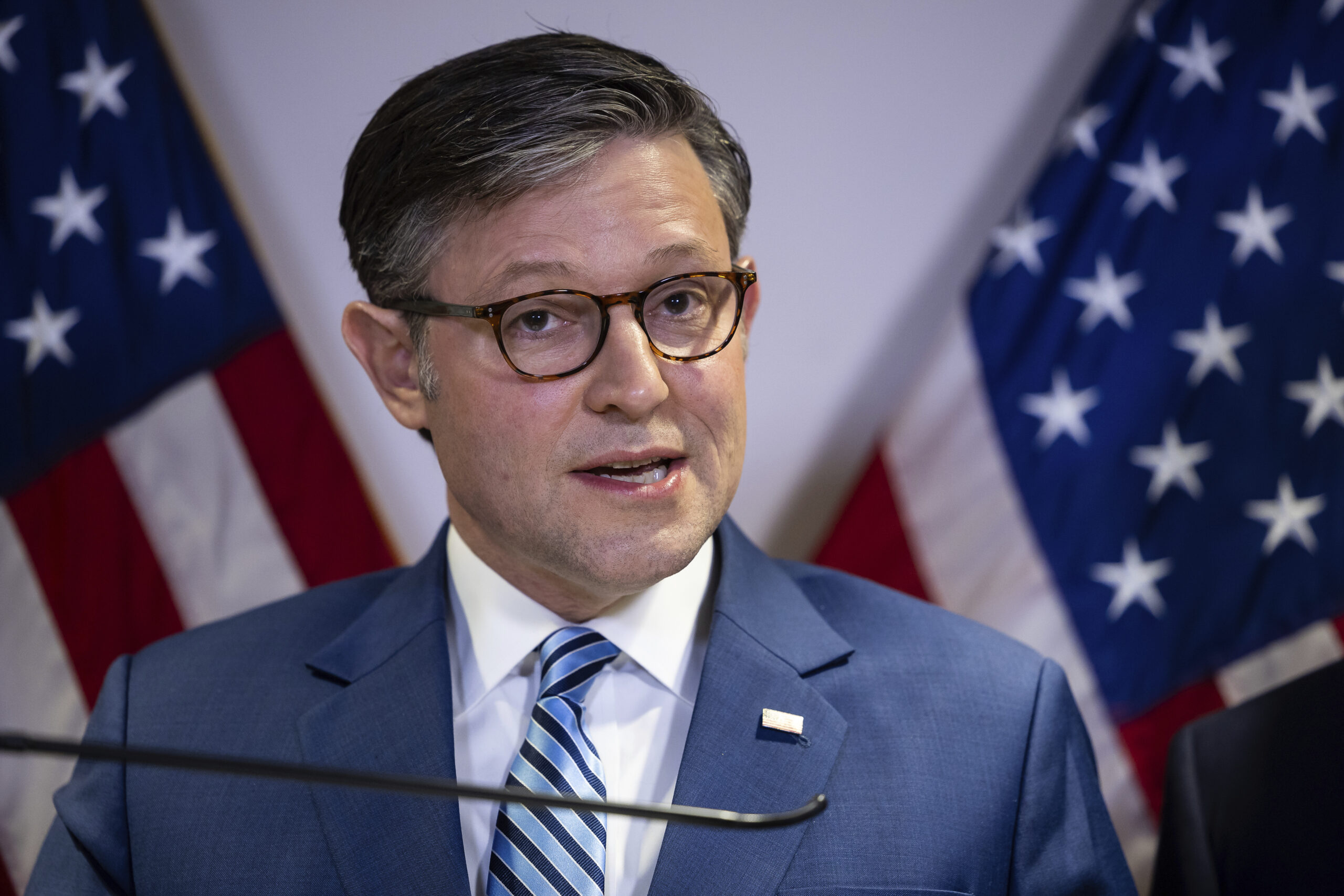
Johnson needs Dems to pass a stopgap spending bill. Here’s what they want.
Lawmakers only have nine working days left to figure out government funding before the shutdown deadline, and Speaker Mike Johnson will almost certainly need House Democratic votes to pass it.
Congress is likely to pass a stopgap government funding measure before Dec. 20, likely to fund the government until March of next year at its current levels. But considering Johnson’s razor-thin margin and a notable conservative faction of his conference that doesn’t generally support stopgap spending bills, known as continuing resolutions, House Democrats will likely be the ones to get the legislation over the finish line.
Typically, punting a funding deadline into a new year when Republicans will control every lever of power would make Democrats shudder. But they’re not putting up much of a fight this time around.
While leadership negotiations are ongoing at this point, Democrats have made clear that they have one main demand for the stopgap: a robust supplemental package to address disaster aid. They also want to ensure that there are no cuts or partisan riders included in the stopgap measure.
The White House requested nearly $100 billion to aid in recovery from several natural disasters across the country, including hurricanes Helene and Milton, the Maui wildfires and tornadoes in the Midwest.
To be clear: Democrats are not going to provoke a shutdown over the supplemental package and prevent Congress from going home for the holidays. If the continuing resolution is “clean,” as lawmakers put it, they’re going to work to keep the government open.
But they are trying to negotiate for as much funding as they can to get to the number requested by the White House, making clear it’s a priority that the funds reach the states impacted the most by natural disasters. Expect some last-minute dustups if this number comes in too low.
And Republican appropriators have hinted that the supplemental funding total could be much less than what the White House requested. When asked for details on where negotiations stood on Monday, appropriators on both sides said they weren’t willing to share the topline number — a signal of potential trouble ahead.
Some news: Two key pieces of legislation — the Workforce Innovation and Opportunity Act, which funds the bulk of the nation’s work training programs, and the Older Americans Act, which funds a range of services for seniors — could ride on the continuing resolution. Both have sign off from the top four committee leaders, a person familiar with the negotiations told POLITICO.
Either way, don’t expect text until the weekend: As we reported on Friday, the soft deadline for releasing bill text is typically the Sunday prior to the shutdown cliff — Dec. 15 in this case.
And a reminder: The less time lawmakers have to review legislation, the greater its chances of passing the chambers quickly.
Jennifer Scholtes and Katherine Tully-McManus contributed to this report.
